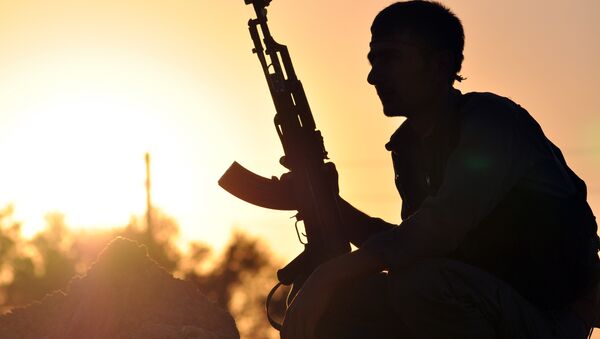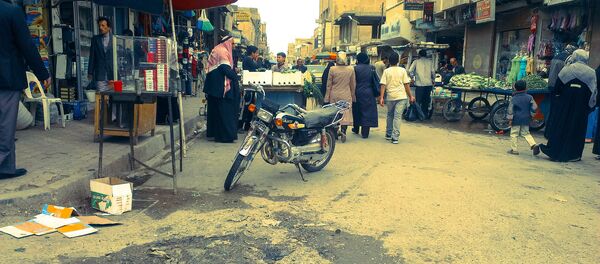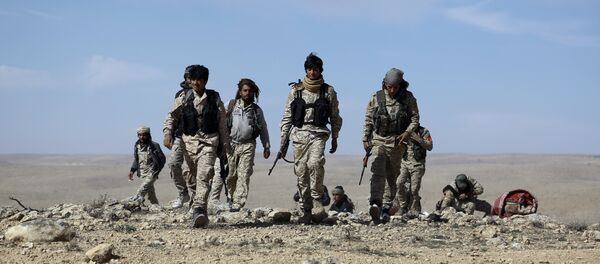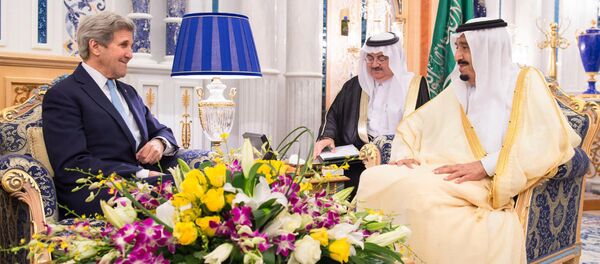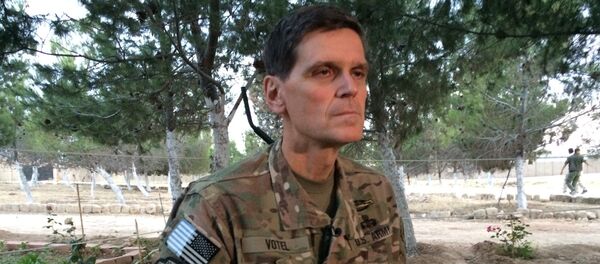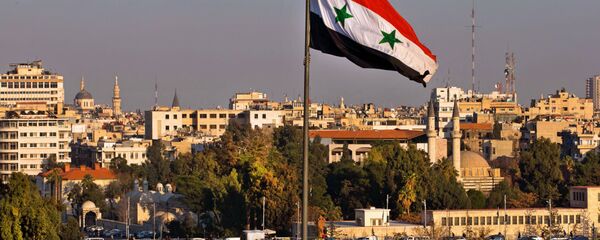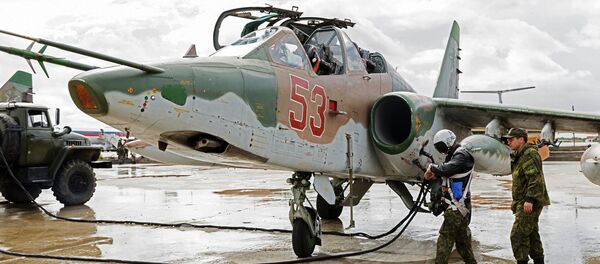In an exclusive interview for Sputnik Turkey, PYD co-chair Salih Muslim spoke about a number of issues, including, first and foremost, the vital importance the Kurdish leadership places on liberating the de-facto Daesh capital of Raqqa from the terrorist group.
Muslim emphasized that the city is not only Daesh's political capital, but also a critically important military and logistical center for the terrorists. "This is a constant threat to all of Rojava," he said. "Therefore, the decisive liberation of Raqqa from the jihadists is vitally important for the Rojava. The goal of this operation is to eliminate the threat emanating from the area. The operation had been planned for long time."
Asked to comment on reports suggesting that the operation is currently limited to liberating only the northern part of the city, the PYD leader said that this was not an indication that the terrorists would be allowed to maintain a foothold in the rest of the city permanently.
"Right now we're talking about the north of Raqqa. The scale of the operation is dependent on the decisions of SDF command. Whether gradually or all at once, the threat needs to be eliminated in any case. The operation may be carried out in several stages. This is the first stage, where the main forces are committed to liberating northern Raqqa and the roads and approaches into the city."
Asked whether plans exist to incorporate the city into the Federation of Northern Syria, a recently declared autonomous federation in northern Syria being led by the PYD, Muslim emphasized that "there is no talk of Raqqa's incorporation" at present.
"The military units will liberate the city, after which control will be transferred to civilian leadership. This is what happened in Sheddadi, al-Hol, and Tell Abyad." Civilian leaders in the city, Muslim said, would be responsible for city management and for representing the interests of the local population. "Public representatives will discuss the issue, and then make the decision on whether to stay autonomous or to join any other entity."
"This project," Muslim reiterated, "has been developed not only for the Rojava, but for the whole of Syria. We believe it is necessary to implement it throughout the country. If the parliament in Raqqa considers our project acceptable, it too can join."
Asked whether there are any concrete plans at the moment to liberate the Daesh-controlled Aleppo region towns of Manbij and Jarabulus, Muslim indicated that no such plans exist at this time. "But from the political point of view, of course this needs to be done. We do not know exactly when these operations can be carried out; it depends on the combat capabilities and readiness of the military forces."
Turkish and Saudi Interference in Syrian Affairs
Asked to comment on the possibility of Turkish and Saudi forces conducting a joint military operation on Syrian territory, Muslim said that he believed that this remains a real possibility and a threat.
"The possibility definitely exists; they already made attempts at incursions in the past. With their contact and support for the Daesh terrorists, Turkey and Saudi Arabia are already interfering in Syria's internal affairs. From the point of view of international law, these actions are totally unacceptable. We are categorically opposed to any interference in Syria's affairs."
Washington, Moscow, and the Geneva Peace Talks
"There was no meeting. I arrived in Kobani to visit relatives, friends and party colleagues. I did not plan to hold any meetings of this kind during my visit. But a visit of a high-level military delegation to Kobani is normal, and logical. It includes advisors from the American side. The visit of the US delegation, their discussions with the Syrian Democratic Forces, is a normal thing. A war is going on; military operations against Daesh are underway. The visit of US military officials demonstrates the great importance attached to this war."
Asked about whether he has any formal contacts with Moscow, Muslim said that they were limited to technical contacts in the field. "We do not have any political or military agreements with Russia. From time to time we hold technical meetings with the Russian side directly in the theater of operations. Our delegations also regularly travel to Moscow." Russia, the politician noted, wants to see Kurdish participation in the peace talks in Geneva.
"Russia is insisting on the participation of a Kurdish delegation at the Geneva talks. The Russian side is aware of the important role played by the Kurds, and has a real understanding of the situation in the region. The talks in Geneva cannot be considered complete without the participation of the Kurds; they will not bring the desired results. Russia understands this. I hope that the US and Europe will also come to realize this. Our participation in the negotiations, and we are entitled to do so, will benefit all participants of the political process."
"Some forces do not want to achieve a political solution to the Syrian crisis, because it is not in their interests. As a result they are doing everything they can to slow the process, in particular, trying to prevent the participation of the Kurds. In reality, these actions have only one goal – to prevent a political resolution to the Syrian problem. Without the participation of the Kurds, there can be ono solution to the issue."
Asked to comment on the absurdity of the fact that the US continues to reject Kurdish participation in the Geneva talks, despite Kurdish-US military cooperation against Daesh on the ground, Muslim explained that the Kurdish side "does not believe in the paradigm 'all or nothing'."
"We consider that we can cooperate together up to a certain point, to support interaction, and then go our separate ways. I consider it a positive thing that at the moment there is a joint struggle, coordination against Daesh. It's possible that at some point the parties, either the Kurds or the Americans, will see a political benefit from their interaction. So far that has not happened. This does not mean that the Kurds will never participate in the Geneva talks. We do not look at it as an 'all or nothing' proposition. This is politics."
"This is completely untrue. Such rumors did appear, but it has since been revealed that they are pure fiction. Arabs and Kurds live together side by side. In areas inhabited by the Arab population, joint committees have been formed; all of them work together. People are returning to their communities; they are building their future together. There is a saying: 'lies have short legs'. Anyone who wants to come here can come, for example, to Sheddadi or Tell Abyad, and confirm it for himself. Every week hundreds join the ranks of the YPG and the SDF."
Asked whether the Kurdish side is maintaining a relationship with the Syrian government, Muslim noted that at present, no such relations are in place. "There have been various proposals for a new Syrian constitution. The UN, the US and Russia are working on a project. We are also working in this direction; after all, the future of Syria will depend on how much detail is elaborated in the new constitution."

